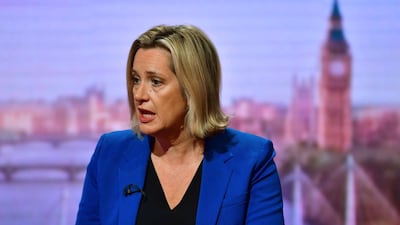British prime minister Boris Johnson will make a fresh attempt to hold national elections on Monday after his government was rocked by the resignation of a senior minister.
Mr Johnson lost a series of votes and expelled 21 MPs from his ruling party in a turbulent week that sparked doubts about his ability to quit the European Union by October 31.
Mr Johnson’s dwindling stock of loyal MPs means that he lacks the parliamentary firepower to force through his policies. He was buoyed by new opinion polls on Sunday that suggested he could secure a significant majority if elections were held before the scheduled date of 2022.
Early elections require the agreement of two-thirds of MPs and the opposition has refused to back the move unless Mr Johnson extends talks with the EU.
Ministers indicated that he could ignore legislation agreed last week that would force him to delay Brexit if he fails with the fresh effort for new elections.
Mr Johnson on Thursday reiterated his determination to deliver Brexit saying he'd “rather be dead in a ditch” than agree to another delay beyond October 31. That move could see the government taken to court over its refusal to carry out the new law.
Robert Buckland, a minister and the government’s senior law officer, played down suggestions that he would quit and said that he had spoken with the premier about upholding the rule of law. "Speculation about my future is wide of the mark," he wrote on Twitter.
The continued turmoil followed the resignation of Amber Rudd, the Work and Pensions Secretary, from Mr Johnson’s cabinet and the party. She said that he had made no real effort to secure a new deal with the European Union.
She also criticised the “purge” of longstanding members of her party who had refused to back the prime minister’s strategy that she claimed was focused on leaving without a future deal on political relations and trade with the EU.
“It's a big symbol that the Conservative Party doesn't embrace moderate people," she said. “I kept on arguing against it, but I wasn't getting anywhere."
The 21 – who included two former chancellors and Winston Churchill's grandson Sir Nicholas Soames – were expelled after voting against the government by supporting a bill to stop Britain leaving the EU without a deal.
"I know I couldn't carry on in the Conservative Party at such a high level and see 21 of my colleagues, who are good, moderate people who also want a deal, excluded from it,” she told the BBC. “I just needed to move and stand by them.”
Mr Johnson’s office said she knew she would have to sign up to potentially leaving the EU with no-deal when she took on the job in his cabinet.
“We are disappointed to learn that Amber has chosen to leave government and the party,” a spokesman for 10 Downing Street said in a statement.
Treasury chief Sajid Javid also rebutted her claim that the government was not seeking a new agreement with the EU. He insisted that the government was "straining every sinew” but cited proposals already rejected by the EU.
Mr Johnson’s allies shrugged off the loss of Ms Rudd – a former interior minister who campaigned to remain in the European Union. Foreign secretary Dominic Raab said that Mr Johnson was "right to restore some discipline".
Mr Johnson's brother, Jo, resigned on Twitter two days ago, saying that he was torn between “family loyalty and the national interest”.


